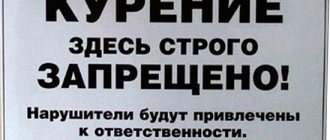Concept of weekly uninterrupted rest
Regulated by Article 110 of the Labor Code, rest for workers each week should not be divided into time periods that do not reach the minimum duration of weekends.
The essence of the concept is that workers can rest from the work process for a certain period between two working weeks. It must be continuous, unconditional, at this time rest is legally defined and regulated. The employer’s obligation to provide all its subordinates with this type of rest every week is enshrined in Part 1 of Article 111 of the Labor Code of the Russian Federation.
Regardless of the length of the working week, Sunday is considered a common day off for all categories of civil servants. The second day off, if it takes place according to the internal rules adopted in this organization, is determined arbitrarily. As a rule, these days are consecutive. This could be Saturday and Sunday, or Sunday and Monday.
The main condition is that the duration of weekly continuous rest reaches the minimum established by regulations.
However, this concept also implies exceptions. This includes cases with employers whose enterprises periodically suspend the work process for technical reasons related to the peculiarities of production activities. This also includes some organizational conditions beyond the control of the manager. For this purpose, Part 3 of Article 111 of the Labor Code provides for the provision that employees of such an enterprise are allowed weekly rest (days off) on different days of the week, in order of priority or in another organizational order.
What to do if breaks are not given during the working day?
Chapter 18 of the Labor Code of the Russian Federation is devoted to breaks in work. As a general rule, the employer is obliged to provide employees with breaks from work. If it is not possible to provide a break at certain jobs, then the employer is obliged to ensure that the employee has the opportunity to rest and eat food during working hours.
What to do when you are not given a break during the working day?
- You can file a complaint with the head of the organization if, for example, the head of the department does not allow breaks.
- You can file a complaint with the labor dispute commission.
- In addition, the employee can complain to the labor inspectorate or the prosecutor's office. Based on the applicant’s complaint, an inspection will most likely be organized and a decision will be made based on the results of the inspection.
- On the one hand, by resorting to complaints regarding the lack of breaks during the working day, the employee tries to restore his violated rights, on the other hand, the relationship between the employer and employee becomes “strained”.
Alternatively, an attempt to peacefully resolve the situation may consist of written requests from the employee to the employer about why he is not being provided with breaks. Repeated appeals to the employer, and even more so an indication in them that in the event of further violation of the applicant’s rights, he will contact the supervisory authorities, can lead to stabilization of the situation, as a result of which the employee will achieve the breaks he is entitled to from work.
USEFUL : read more about disputes with an employer and watch the video
Involvement in special cases
On weekends, going to work is prohibited on a general basis; this is regulated by Part 1 of Article 113 of the Labor Code. But it is still possible to call someone to work if there are circumstances of special significance. To do this, the manager must comply with no less important formalities under Part 8 of Article 113 of the Labor Code of the Russian Federation - that is, make an order in writing.
All employees called to work must be familiarized with it, under personal signatures. This means the employee’s consent to be hired to work on his legal day off, as enshrined in Part 2 of Article 113 of the Labor Code. This includes cases of the need to perform urgent and unforeseen work, on which the normal functioning of the institution in the future depends.
Without the written consent of the employee, a call to work is also allowed (Part 3 of Article 113 of the Labor Code). These are force majeure circumstances: preventing a production accident or eliminating its results, reducing the impact of a natural or man-made disaster.
As well as urgent work due to the introduction of a state of emergency or martial law. Then the calling procedure becomes as simplified as possible, but also provided for by law.
Also, Part 5 of Article 113 of the Labor Code of the Russian Federation mentions the general rule according to which recruitment to work is possible not only with the written consent of the employee, but also with the involvement of the elected body of the trade union of the enterprise and taking into account its opinion. This includes other cases where the duration of weekly uninterrupted rest becomes shorter than generally accepted.
Article 153 of the Labor Code of the Russian Federation provides for a provision for increased wages for workers if they are involved in activities on weekends.
Summarize
Let us briefly recall the main provisions of the legislation on employment on a holiday. If reasons arise due to which work on a holiday is necessary, the employee’s consent must be obtained (with the exception of some cases, mainly related to emergency situations) and an order must be issued to involve him in such work. Employees of certain categories (women with children under three years of age, workers raising a child under five years of age without a spouse, etc.) must be informed in writing of the right to refuse to work on a holiday. And pregnant women and minors are completely prohibited from being involved in such work. And of course, “holiday” work must be compensated in accordance with Art. 153 of the Labor Code of the Russian Federation - provide increased pay or provide an additional day of rest.
[1] “On the application of legislation regulating the labor of women, persons with family responsibilities and minors.” [2] “On the preparation and holding in the Russian Federation of the 2021 FIFA World Cup, the 2021 FIFA Confederations Cup and amendments to certain legislative acts of the Russian Federation.”
[3] Valid to the extent that does not contradict the Labor Code of the Russian Federation (Article 423 of the Labor Code of the Russian Federation).
Source: Journal “Payment in state (municipal) institutions: accounting and taxation”
Minimum duration of weekly uninterrupted rest
Any citizen working under an employment contract has the right to a weekly rest from professional activities. The duration of weekly uninterrupted rest must be at least 42 hours. In some cases, it is less time, but this is legal provided that, on average, during the billing period the required minimum weekly break from work for the employee is met.
This regime should be taken into account when drawing up schedules and staffing at any enterprise or organization, as well as for individual entrepreneurship with the hiring of contract workers. The minimum duration of a day off depends on the specifics of the work and the number of employees in the organization.
If the work involves shifts, then it is calculated in shifts, especially if it is a continuous type of production.
It should be noted that the procedure for providing this type of rest to workers in individual industries is somewhat different. This includes railway, road and water transport. Here, the minimum rest period per week is regulated by internal regulations, charter, regulations on working hours and hours of rest.
The work schedule of an individual employee (or category of employees) or an entire department includes not only the number of hours for rest, but also the names of the days off. Weekends should be:
- two days – with a 5-day work week.
- one day - with 6 days.
Moreover, in accordance with Article 95 of the Labor Code, working hours on the eve of a day off, with a 6-day week, are reduced from 8 hours in total to 5 hours.
MY RIGHTS: HOW TO PROTECT YOUR RIGHTS
Types of rest time: Breaks during the working day, weekends, vacations
In accordance with labor legislation, an employee has the right to rest, including rest during the working day.
Rest time is a period of employment relations during which the employee is free from performing his duties under the employment contract.
The employee’s right to rest is enshrined in the Constitution of the Russian Federation and the Labor Code of the Russian Federation:
- Everyone has the right to rest. A person working under an employment contract is guaranteed the length of working hours established by federal law, weekends and holidays, and paid annual leave.
Clause 5 of Article 37 of the Constitution of the Russian Federation
- The employee has the right to:
rest provided by the establishment of normal working hours, reduced working hours for certain professions and categories of workers, the provision of weekly days off, non-working holidays, and paid annual leave.
Article 21 “Basic rights and obligations of an employee” of the Labor Code of the Russian Federation (as amended on 02/05/2018)
Types of rest time
Types of rest time are:
- breaks during the working day (shift);
- daily (between shifts) rest;
- weekends (weekly uninterrupted rest);
- non-working holidays;
- vacation.
Article 107 “Types of rest time” of the Labor Code of the Russian Federation (as amended on 02/05/2018)
Breaks during the working day (shift)
During the working day (shift), the employee has the right to rest. During the break, the employee is released from work and uses the rest time at his own discretion.
Types of breaks during the working day (shift):
- break for rest and food
- special break for warming up and rest
- breaks to feed the baby.
Chapter 18 “Work breaks. Weekends and non-working holidays" of the Labor Code of the Russian Federation (as amended on 02/05/2018)
1.1. Breaks for rest and food
Break for rest and food:
- is not included in working hours and is not paid ;
- The duration of the break for rest and food should be at least 30 minutes and no more than 2 hours.
For some categories of workers (railroad workers, drivers, etc.), with an 8-hour working day, the break for rest and food can be divided into two parts:
- Moreover, the total duration of these parts should be from 30 minutes to 2 hours;
- if, according to the shift schedule, the working day of such an employee exceeds 8 hours, he must be given two breaks.
By agreement of the parties, due to operational necessity, within the working day, a break for rest and food may be postponed to another time without changing the established duration.
A break for rest and food is provided:
- all employees;
- as a general rule, the specific time for providing a break for rest and food and its duration must be recorded in the internal labor regulations;
- it is possible to determine the time for providing a break for rest and food, as well as its duration, by agreement of the parties to the employment contract.
If, according to working conditions, it is impossible to provide a break for rest and food:
- the employer is obliged to provide the employee with the opportunity to rest and eat during working hours;
- the list of works, and places for rest and meals must be determined in the Internal Labor Regulations;
- in this case, the break for rest and food is included in working hours and is paid.
Article 108 “Breaks for rest and meals” of the Labor Code of the Russian Federation (as amended on 02/05/2018)
1.2. Special breaks for warming and rest
Payment for break time for heating and rest:
- if the need to provide a special break (heating, heat removal, etc.) is specified in the technical specifications, technological documentation, sanitary or other rules, then its duration is included in working hours and paid for;
- in other cases, a special warm-up and rest break is a type of rest break and is not paid.
Employees who, in accordance with labor legislation, are provided with a special break for warming and rest:
- workers working outdoors in the cold season,
- employees working in the cold season in closed, unheated rooms;
- workers working in conditions of elevated air temperatures (when working outdoors and air temperatures of 35 ° C and above, the duration of continuous work should be 15 - 20 minutes;
- loaders involved in loading and unloading operations,
- air traffic controllers,
- drivers of cars involved in intercity transportation.
Types of work for which special breaks for heating and rest are provided, their duration and procedure for provision:
- must be defined in the internal labor regulations or in the employment contract;
- an employee engaged in such work has the right to demand that the employer provide a special break.
Article 109 “Special breaks for heating and rest” of the Labor Code of the Russian Federation (as amended on 02/05/2018)
1.3. Baby feeding breaks
Breaks for feeding the baby are provided:
- women with children under 1.5 years of age,
- as well as fathers and other persons raising children without a mother,
- in some cases, the specified rules for providing a break for feeding a child apply to guardians of minors.
Duration of the break for feeding the baby:
- must be at least 30 minutes;
- frequency of breaks: every three hours;
- If a woman has two or more children under 1.5 years of age, the duration of the break should be at least 1 hour .
A woman has the right:
- determine the procedure for using breaks to feed the child;
- according to her statement, these breaks can be added to the break for rest and food or, in aggregate form, transferred to the beginning or end of the working day.
The employer is obliged:
- count breaks for feeding the child(ren) as working time and
- pay them in the amount of average earnings.
Article 258 “Breaks for feeding a child” of the Labor Code of the Russian Federation (as amended on 02/05/2018)
Daily rest between shifts
Daily (between shifts) rest:
- this is the period between the time when one working day must end and another, immediately adjacent working day must begin;
- The right to daily rest between shifts arises for the employee after working out the daily working hours.
Duration of daily rest between shifts:
- including time for rest and food, must be at least twice the length of the working day (shift) preceding the rest:
16 hours with an 8-hour working day;
- When working on a rotational basis, the duration of daily (between shifts) rest, taking into account lunch breaks, can be reduced to 12 hours.
Weekly uninterrupted rest (weekends)
Weekly uninterrupted rest:
- this is the period between the time when one working day (the day before the weekend) must end and another working day (immediately following the weekend) must begin;
- The duration of weekly uninterrupted rest must be at least 42 hours .
The employee has the right to demand:
- providing him with days off, the number of which depends on the length of the working week;
- with a 5-day working week, the employee is given 2 days off. Both days off are usually provided in a row;
- with a 6-day working week, the employee is given 1 day off.
The general day off is Sunday. The second day off in a five-day working week must be determined by internal labor regulations.
For the purpose of rational use of weekends and non-working holidays by employees:
- The Government of the Russian Federation may transfer days off to other days.
It is possible to provide days off on days other than Sunday, subject to the following conditions being simultaneously met:
- the employee is engaged in work that cannot be suspended;
- The reasons for the impossibility of suspending work are production, technical and organizational conditions.
For example, trade organizations engaged in serving the population, and others.
- days off are provided to employees on different days of the week
- days off are provided alternately to each group of workers;
- the procedure for provision and the priority schedule are determined in the internal labor regulations.
As a general rule, working on weekends is prohibited. The employer does not have the right to declare a day off as a working day, incl. by postponing it to another day.
Article 110 “Duration of weekly continuous rest”, Article 111 “Weekends” of the Labor Code of the Russian Federation (as amended on 02/05/2018)
Non-working holidays
An employee has the right to rest on holidays established by Russian legislation.
Non-working holidays in the Russian Federation are:
- January 1, 2, 3, 4, 5, 6 and 8 - New Year holidays ;
- January 7 - Nativity of Christ ;
- February 23 - Defender of the Fatherland Day ;
- March 8 - International Women's Day ;
- May 1 - Spring and Labor Day ;
- May 9 - Victory Day ;
- June 12 - Russia Day ;
- November 4 is National Unity Day .
A regulatory legal act of a constituent entity of the Russian Federation may declare a religious holiday a non-working day on the territory of a constituent entity of the Russian Federation.
If a weekend coincides with a holiday:
- the day off is transferred to the next working day after the holiday;
- the employer is not required to confirm this transfer by issuing a local regulation.
If holidays and weekends coincide, the Government of the Russian Federation:
- as a general rule, can postpone weekends,
- but not holidays, the date of which is fixed in law.
For the New Year holidays and the Nativity of Christ:
- there is a special procedure for postponing days off if they coincide with a holiday;
- if necessary, the Government of the Russian Federation acts in accordance with this procedure.
The employer does not have the right to independently postpone a day off that coincides with a holiday to another day.
For employees receiving official salary:
- payment for non-working holidays is not provided;
- at the same time, the presence of non-working holidays in a calendar month is not a basis for reducing the wages of such employees;
- therefore, an employee receiving a salary (official salary) has the right to demand payment of his monthly earnings in full, despite the fact that the number of working days in a calendar month has been reduced due to non-working holidays.
Employees, with the exception of employees receiving a salary (official salary):
- for holidays on which they were not involved in work, have the right to demand payment of additional remuneration if, due to holidays, non-working days there was an actual reduction in their monthly working hours;
- in this case, the amount and procedure for paying additional remuneration must be specified in the collective agreement, agreement, local regulation, or employment contract.
Article 112 “Non-working holidays” of the Labor Code of the Russian Federation (as amended on 02/05/2018)
Vacations
Vacation:
- this is a long period of rest with a special procedure for provision;
- During the period of annual leave, the employer retains the employee’s place of work (position) and average earnings (except for leave without pay).
Types of vacations:
- annual paid holidays:
annual basic paid leave;
- annual additional paid leave;
- annual extended basic leave;
- additional leave while maintaining average earnings;
General procedure for granting vacations:
- the priority of granting paid vacations is determined annually in accordance with the vacation schedule;
- the total duration of annual paid leave is determined by summing up the annual main and all additional annual paid leaves;
- in cases established by law, annual paid leave may be extended or postponed to another period determined by the employer taking into account the wishes of the employee;
- the unused part of the annual paid leave exceeding six months is added to the next annual paid leave for the next year;
- By agreement between the employee and the employer, annual paid leave can be divided into parts . Moreover, at least one part of this leave must be at least 14 calendar days;
- An employee's recall from vacation is permitted only with his consent. The part of the vacation unused in this regard must be provided at the employee’s choice at a time convenient for him during the current working year or added to the vacation for the next working year;
- a part of the annual paid leave exceeding 28 calendar days, upon the written application of the employee, can be replaced by monetary compensation;
- upon written application of the employee, unused vacations may be granted to him with subsequent dismissal (except for cases of dismissal for guilty actions). In this case, the day of dismissal is considered the last day of vacation;
- Persons working part-time are granted annual paid leave simultaneously with leave for their main job. If an employee has not worked for 6 months at a part-time job, then leave is provided in advance.
Article 114 “Annual paid holidays” of the Labor Code of the Russian Federation (as amended on 02/05/2018)
5.1. Annual basic paid leave
Annual basic paid leave can be calculated:
- in calendar or working days, as well as in days (for some workers).
Duration of annual basic paid leave:
- cannot be less than 28 calendar days;
- some employees are granted extended annual basic paid leave, lasting more than 28 calendar days;
- if the employment contract includes a condition for vacation of less than 28 calendar days, such a condition is invalid.
Employees who are granted extended basic paid leave:
- disabled people - 30 calendar days ;
- minor workers - 31 calendar days;
- teaching staff - from 42 to 56 calendar days (depending on position);
- workers engaged in work with chemical weapons - from 49 to 56 calendar days (depending on the type of work performed);
- pensioners living in stationary social service institutions and working under an employment contract (women - 55 years old, men - 60 years old) - 30 calendar days;
- rescuers of professional emergency rescue services, formations - from 30 to 40 days (depending on the length of service as rescuers).
Article 115 “Duration of annual basic paid leave” of the Labor Code of the Russian Federation (as amended on 02/05/2018)
5.2. Annual additional paid leave
The employer is obliged to provide the following employees with additional annual paid leave:
- for working under harmful or dangerous working conditions:
minimum duration - 7 calendar days;
- the duration of leave depends on the degree of harmfulness or danger of working conditions and is established based on the results of a special assessment of working conditions;
- the list of categories of employees for whom leave is established, as well as its minimum duration and conditions for provision are determined by the Government of the Russian Federation.
- for work in the Far North, vacation is granted - 24 calendar days ,
Article 321 “Annual additional paid leave” of the Labor Code of the Russian Federation (as amended on 02/05/2018); Article 14 “Additional leave” of the Law of the Russian Federation of February 19, 1993 No. 4520-1 “On state guarantees and compensation for persons working and living in the Far North and equivalent areas” (as amended on March 7, 2018)
- for work on irregular working hours:
The minimum duration of vacation is 3 calendar days ;
- the specific duration is established in the internal labor regulations and collective agreement;
- the minimum duration of leave and the conditions for its provision are determined by Decree of the Government of the Russian Federation dated April 21, 2010 No. 258;
Decree of the Government of the Russian Federation dated April 21, 2010 No. 258 “On the minimum duration of annual additional paid leave and the conditions for their provision to employees of representative offices of the Russian Federation abroad” (as amended on March 25, 2013)
- to the athlete:
the minimum duration of vacation is 4 calendar days;
- the specific duration of leave is determined by a collective agreement, local regulations, or employment contract;
Article 348.10 “Additional guarantees and compensation for athletes and coaches” of the Labor Code of the Russian Federation (as amended on 02/05/2018)
- to the coach:
the minimum duration of vacation is 4 calendar days;
- the specific duration of leave is determined by a collective agreement, local regulations, or employment contract;
Article 348.10 “Additional guarantees and compensation for athletes and coaches” of the Labor Code of the Russian Federation (as amended on 02/05/2018)
- medical workers:
the list of positions of medical workers entitled to additional leave and its duration are approved by resolutions of the Government of the Russian Federation dated 06.06.2013 No. 482, dated 30.12.1998 No. 1588, dated 04.03.1996 No. 391;
Decree of the Government of the Russian Federation dated 06.06.2013 No. 482 “On the duration of the annual additional paid leave for work with harmful and (or) dangerous working conditions provided to certain categories of employees” (as amended on 06.23.2014); Decree of the Government of the Russian Federation of December 30, 1998 N 1588 “On establishing for general practitioners (family doctors) and nurses of general practitioners (family doctors) an annual additional paid 3-day leave for continuous work in these positions”
- veterinary and other workers involved in the provision of anti-tuberculosis care, as well as workers serving farm animals with tuberculosis:
the minimum duration of leave is determined in the Decree of the State Committee for Labor of the USSR, the Presidium of the All-Union Central Council of Trade Unions dated October 25, 1974 No. 298/P-22, and the Decree of the Government of the Russian Federation dated June 6, 2013 No. 482;
- the duration of the vacation is determined in the Decree of the State Committee for Labor of the USSR, the Presidium of the All-Union Central Council of Trade Unions dated October 25, 1974 No. 298/P-22, and the Decree of the Government of the Russian Federation dated June 6, 2013 No. 482;
- the duration of the vacation is determined in the Decree of the State Committee for Labor of the USSR, the Presidium of the All-Union Central Council of Trade Unions dated October 25, 1974 No. 298/P-22, and the Decree of the Government of the Russian Federation dated June 6, 2013 No. 482;
- duration of vacation - 14 calendar days or 7 calendar days;
clause 5, part 1 of Article 14 “Compensation for harm and measures of social support for citizens who received or suffered radiation sickness, other diseases, and disabled people as a result of the Chernobyl disaster”, clause 4, part 1 of Article 19 “Compensation for harm and measures of social support for citizens, permanently residing (working) in the territory of the residence zone with a preferential socio-economic status" Law of the Russian Federation dated 05/15/1991 No. 1244-1 "On the social protection of citizens exposed to radiation as a result of the disaster at the Chernobyl nuclear power plant" (as amended on 03/07/2018 )
- rescuers of professional emergency rescue services, formations:
duration of vacation - no more than 15 days at the rate of 1 day of vacation per 24 hours of work;
Clause 6 of Article 28 “Regimen of work (service) and rest of rescuers” of the Federal Law of August 22, 1995 No. 151-FZ “On emergency rescue services and the status of rescuers” (as amended on January 16, 2018)
- employees included in the Russian Antarctic Expedition (including crew members of ships and aircraft):
duration of vacation - 44 calendar days;
Clause 12 of Article 5 “Organization of activities in Antarctica in the interests of the Russian Federation” of the Federal Law of June 5, 2012 No. 50-FZ of the Federal Law “On the regulation of the activities of Russian citizens and Russian legal entities in Antarctica”
- Air transport workers:
the duration of the leave depends on the hours flown; the procedure and conditions for its provision are determined by order of the USSR Ministry of Civil Aviation dated March 13, 1986 No. 50.
When calculating the total duration of annual paid leave:
- additional leaves are summed up with the annual basic paid leave;
- If a collective agreement or local regulation provides employers with additional paid leave for all or some categories of employees, the employee has the right to demand that such leave be provided to him.
5.3. Additional annual leave without pay
The following employees may be granted additional annual leave without pay:
- an employee who has two or more children under the age of fourteen,
- an employee who has a disabled child under the age of eighteen,
- a single mother raising a child under the age of fourteen,
- a father raising a child under the age of fourteen without a mother,
- guardian (trustee) of a minor.
Article 263 “Additional leaves without pay for persons caring for children”, Article 264 “Guarantees and benefits for persons raising children without a mother” of the Labor Code of the Russian Federation (as amended on 02/05/2018)
The employee has the right to demand the provision of such additional leave if such a possibility is provided for in the collective agreement. The duration of additional leave is up to 14 calendar days .
The employer is obliged to provide the following employees with additional annual leave without pay:
- an employee awarded the highest state awards for labor achievements - Hero of Socialist Labor, Hero of Labor of the Russian Federation, full holder of the Order of Labor Glory - up to 3 weeks a year ;
Part 2 of Article 6 “Benefits for vocational training and additional vocational education, for the provision of vacations” of the Federal Law of 01/09/1997 No. 5-FZ “On the provision of social guarantees to Heroes of Socialist Labor, Heroes of Labor of the Russian Federation and full holders of the Order of Labor Glory” ( ed. dated 03/07/2018)
- employees awarded the titles of Hero of the Soviet Union, Hero of the Russian Federation, full holder of the Order of Glory - up to 3 weeks a year;
Part 3 of Article 8 “Benefits for employment and provision of vacations, special rights to education” of the Federal Law of January 15, 1993 No. 4301-1 “On the status of Heroes of the Soviet Union, Heroes of the Russian Federation and full holders of the Order of Glory” (as amended on 07.03. 2018)
- employee - volunteer firefighter of the territorial unit of the voluntary fire department - up to 10 calendar days .
Part 7 of Article 18 “Compensations and benefits provided for volunteer firefighters and employees of the voluntary fire department” of the Federal Law of 05/06/2011 No. 100-FZ “On Voluntary Fire Department” (as amended on 02/22/2017)
5.4. Leave without pay
An employee may be granted leave without pay if the following conditions are simultaneously met:
- availability of a written statement from the employee;
- availability of the employer's consent to provide leave;
- presence of family circumstances or other valid reasons;
- The duration of the vacation is agreed upon between the employee and the employer.
Article 128 “Leave without pay” of the Labor Code of the Russian Federation (as amended on 02/05/2018)
In the following cases, an employee has the right to demand leave without pay for a period of up to 5 calendar days:
- in the event of the birth of a child to an employee;
- in case of marriage registration of an employee;
- in the event of the death of close relatives of the employee.
The following employees are entitled to take unpaid leave of longer duration:
- participants of the Great Patriotic War, disabled people of the Great Patriotic War, combat veterans - up to 35 calendar days a year ;
- working old-age pensioners (by age) - up to 14 calendar days per year;
- parents and wives (husbands) of military personnel, employees of internal affairs bodies, the federal fire service, authorities for control of the circulation of narcotic drugs and psychotropic substances, customs authorities, employees of institutions and bodies of the penal system, who died or died due to injury, concussion or injury, received while performing the duties of military service (service), or as a result of an illness associated with military service (service) - up to 14 calendar days per year;
- working disabled people - up to 60 calendar days per year .
To receive leave:
- the employee is required to provide a written application for leave without pay;
- if there are other grounds in the collective agreement for granting leave without pay, the employee has the right to request leave on these grounds.
Upon dismissal:
- the employee is paid monetary compensation for all unused vacations.
If you have any questions about the violation of your rights, or you find yourself in a difficult life situation, then an online duty lawyer is ready to advise you on this issue for free.
RIGHT TO REST TIME
Calculation of continuous rest
When speaking of the “duration of weekly continuous rest” in labor law practice, they usually mean the time from the end of one working or calendar period (week) to the beginning of the next. The basis for the correct calculation of this time is state legislative acts (Labor Code of the Russian Federation) and local acts of a particular enterprise.
If possible, continuous rest is provided on certain days to the entire staff at the same time. As practice shows, in most cases this is problematic and depends on many factors. Therefore, when calculating the rest of an individual employee, the duration of the weekend as a whole for the previous billing period is taken into account.
The settlement period for cumulative accounting cannot exceed one year.
When drawing up a shift schedule, the employer must certainly take into account the comparison of working hours, according to labor legislation, and the prescribed rest time. It is also necessary to take into account that weekends and holidays should not be included in the calculation, with the exception of cases of labor activity in industries of continuous production. Otherwise, such extracurricular work is compensated by monetary compensation.
When calculating social compensation, for example, for sick leave, weekends are not included in the calculation period and the employee does not receive payments for this time from the institution. However, this time is included in the work and insurance period. Thus, any employee working on a contractual basis receives a well-deserved and legally justified weekly rest, without losing the social guarantees due to him.
Author of the article
Non-working holidays and vacations
The legislator determined the possibility of providing special rest time - non-working holidays. These are the days when the employer is obliged to release his employees from performing work functions. If a holiday and a day off coincide, the day off is transferred to the next day.
At the same time, labor legislation contains a rule that allows in this case to postpone the day off to any other day. If on a non-working holiday the employer needs to involve employees in work, then he can do this only with their written permission.
In addition, employees have the right to annual leave. During this time, his salary and place of work are maintained. Vacation is provided to all employees without exception, even seasonal employees or those who do their work from home.
Only those employees who perform their work on the basis of a civil contract cannot count on vacation. The conditions for granting leave and its duration must be specified in the employment agreement.
Vacation can be divided into several parts at the request of the employee. And according to labor laws, one part should not be less than 14 days. The employer has the right to recall an employee from vacation, but only with his consent.
If an employee refuses to return to work duties before the end of the vacation, this is not a violation of labor discipline. In addition to annual leave, employees are provided with additional rest. Its duration depends on the reasons on which it was granted.








